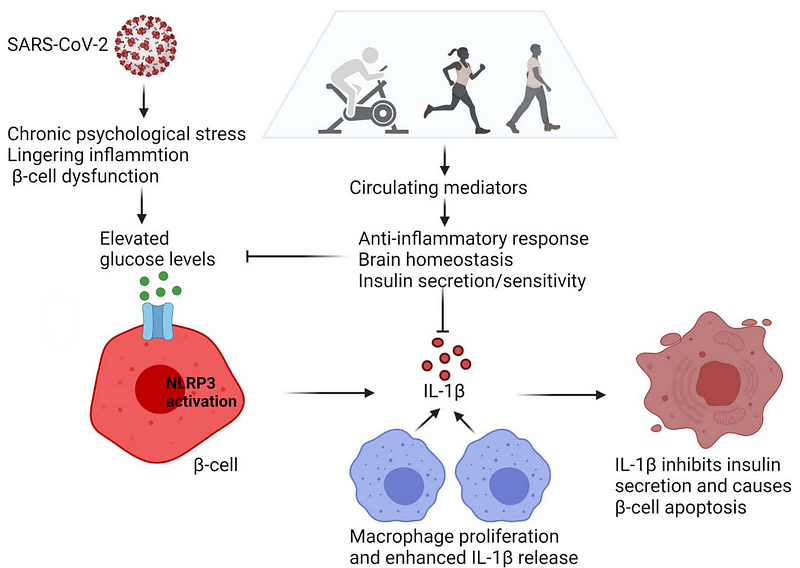# Practical Strategies to Mitigate Long-COVID Risks Based on Research
Written on
Understanding Long-COVID
Long-COVID refers to a variety of symptoms that persist after a Covid-19 infection, with fatigue and cognitive issues being particularly common. According to American guidelines, symptoms must be unaccounted for by other diagnoses and last for several weeks, while British and WHO criteria extend this duration to months. Determining the exact prevalence of long-COVID is complex, with meta-analyses suggesting that 30-80% of Covid-19 survivors experience long-term effects. However, considering pre-existing conditions, the actual prevalence may be below 20%, and only about 5% of those affected may have symptoms severe enough to disrupt daily life.
Given that around 50-70% of long-COVID patients show recovery within 3-9 months, taking proactive steps to prevent it is essential.
1. Biological Factors: Gender and Age
It's important to note that gender and age are significant risk factors, with females being up to three times more likely to develop long-COVID. While we cannot change these factors, we can implement lifestyle changes to mitigate risk.
2. The Importance of Regular Physical Activity
Engaging in regular exercise stands out as a strong protective factor against severe Covid-19, which can lead to long-COVID. Studies reveal that individuals maintaining high physical activity levels experience significantly lower rates of hospitalization and mortality. For example, a South African study of over 65,000 adults with Covid-19 showed that those with high activity levels had up to 45% lower chances of requiring intensive care.
Exercise offers numerous benefits, including improved immune response and inflammation control, which may lessen the chronic inflammation associated with long-COVID. However, caution is advised, as some patients may find exercise exacerbates their symptoms.

3. Modifiable Risk Factors: Smoking, Obesity, and Other Conditions
A recent meta-analysis from the U.K. identified several risk factors for long-COVID, including obesity, smoking, and pre-existing medical conditions. Obesity and smoking contribute to chronic inflammation, which can worsen health outcomes. While we cannot change our age or sex, we can actively manage these modifiable factors to lower our risk of developing long-COVID.
4. Healthy Lifestyle Choices
Maintaining a healthy body mass index (BMI) and ensuring adequate sleep can significantly lower the risk of long-COVID. A study from Harvard revealed that women who adhered to several healthy lifestyle habits had a reduced risk of long-COVID, with healthy BMI and sufficient sleep being the most impactful factors.

5. The Protective Role of Vaccination
Vaccination is crucial in reducing the risk of long-COVID. Research indicates that individuals who received at least two vaccine doses face a 43% lower risk of developing long-COVID compared to those unvaccinated. Other studies corroborate these findings, suggesting that vaccines help protect against severe Covid-19, which is a key predictor of long-COVID.
6. Prevention and Treatment Options: Metformin
Preventing Covid-19 is the most effective strategy to avoid long-COVID. However, if infected, discussing the use of metformin with a healthcare provider may be beneficial. Recent studies suggest metformin may reduce the risk of long-COVID by 42%, particularly when administered early in the course of infection.
This video offers essential tips on how to avoid long-COVID based on the latest research findings.
This video discusses recent public health research and preventive interventions for long-COVID.
In Summary
Scientific evidence supports several strategies to decrease the likelihood of long-COVID: engaging in regular exercise, avoiding harmful habits like smoking, maintaining a healthy weight and sleep schedule, getting vaccinated, and considering metformin if infected. While no single measure guarantees protection, combining these strategies can significantly reduce the risk. The choices we make daily can serve as our best defense against long-COVID.
For those experiencing long-COVID, further information on treatment options and precautions can be invaluable.
Thank you for reading! If you found this information helpful, consider subscribing to my Medium email list or supporting my work.